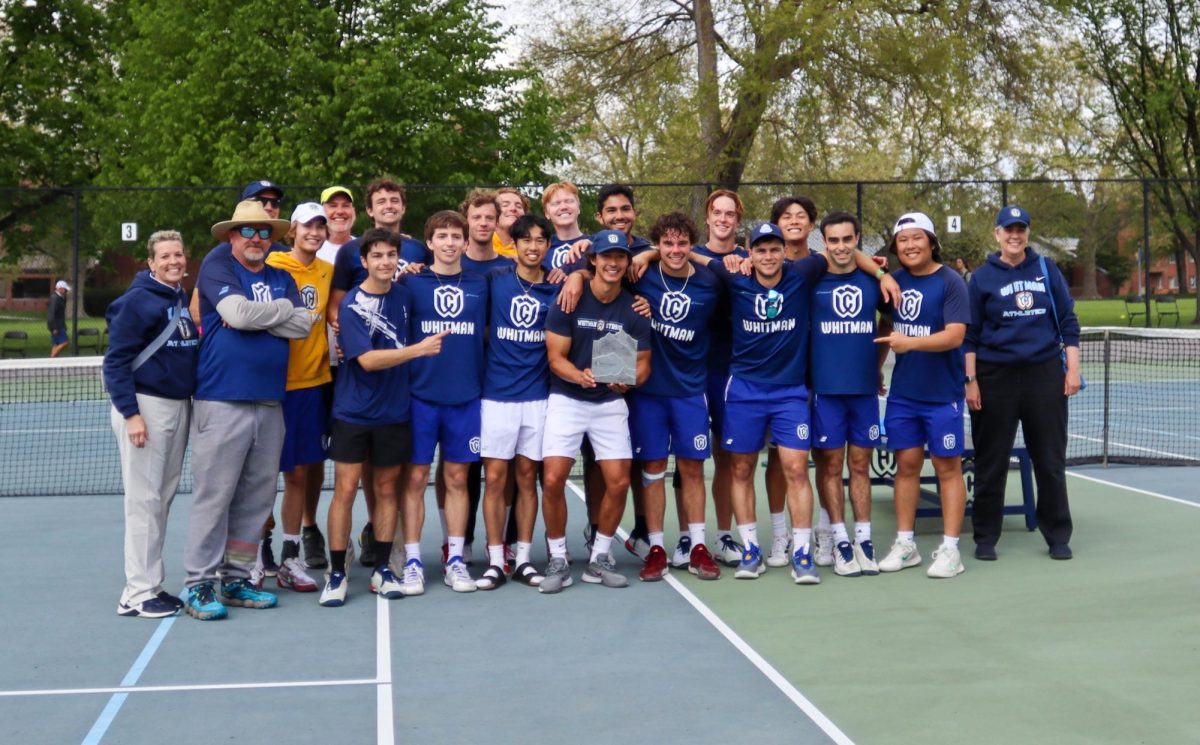In a recent poll conducted by The Pioneer, 73 percent of varsity athletic team captains polled said that they were not satisfied with the recruiting their team does.
“I am not satisfied with the players we have to settle for when really good athletes want to come here, but admissions does not help in any way to get these kids,” said the men’s varsity soccer captain and senior Max Weber.
Weber’s view seems to be a shared one in Whitman’s athletic community. However, only one of the varsity coaches contacted for this article felt comfortable sharing their opinions on this subject for.
In response to whether or not the admissions office does enough to help commit athletes, Michelle Ferenz, senior women’s administrator and coach of the women’s varsity basketball team, said, “These are complicated questions.”
While dissatisfaction with the current recruiting process exists, many understand the conflicts of interest which the admissions office must balance.
“Admissions has to serve many different interests around campus while abiding by the policies and priorities of the Trustees and President Bridges,” said Ferenz. “So, that being said, I think their hands are tied to a large degree.”
Currently, both the team coaches and the admissions office staff work together to recruit and admit athletes. Coaches give admissions a list of their top recruits, and admissions uses the lists to help satisfy the needs of each respective team.
“I share those lists with every person who is reading files, so that they can have a sense of what the needs are for the respective programs,” said Director of Admissions and Athletic Liaison Kevin Dyerly. “Those lists are very helpful because they identify the coaches’ priority recruits and allow us to focus on admitting as many qualified difference makers for their programs.”
According to Director of Athletics Dean Snider, the ideal recruited athlete is a Whitman student and also an outstanding athlete.
“Coaches work their tails off to identify talented, qualified student athletes,” said Snider.
“Our student athlete pool of recruited athletes is essentially the same profile pool as the rest of the campus,” he said.
With such high standards for recruits, Whitman is often forced to turn away talented athletes. However, even when athletes are accepted, both Snider and Dyerly agree that getting the athletes to commit is the toughest part of the recruiting process.
“The hardest part [of recruiting athletes] is the final close: making sure that we get people to make the commitment to come,” said Snider. “Athletics is competitive, collegiate admissions is competitive and when you have an excellent student who is also an excellent athlete there are a lot of people knocking on that kids’ door; the biggest challenge is getting them to choose Whitman over their many other options.”
Dyerly offered explanations as to why admitted athletes often chose other institutions.
“Sometimes it’s that our financial aid award is not the highest, and sometimes it’s that they’ve been offered a merit scholarship from another institution that is less selective,” he said.
Whitman is a Division III school, and as so is unable to provide athletic scholarships. The only way for recruits to receive financial aid is through merit or need-based aid.
“Campus-wide, student aid is an issue. Access to a college that costs $43,000 a year is an issue that we need to recognize,” said Snider. “We’re competing against what other schools are doing to meet the need of its student body.”
Oftentimes the aid Whitman is able to provide is not enough to entice athletes to enroll.
“Without financial aid, the only kids who can come here are both really smart and really wealthy. That’s a pretty small talent pool,” said Mike Rathwell, senior and captain of the varsity baseball team.
While differences in views on access and affordability issues sometimes lead to division among the admissions office and the athletic community, both sides sympathize with the priorities of the other.
“In general, there is a sincere desire to work well with admissions. Our coaches recognize that the people in admissions are trying to do the things that they can to help,” said Snider.
“It’s not a situation where everyone gets everything that they want. That is never going to be the case,” he said.



